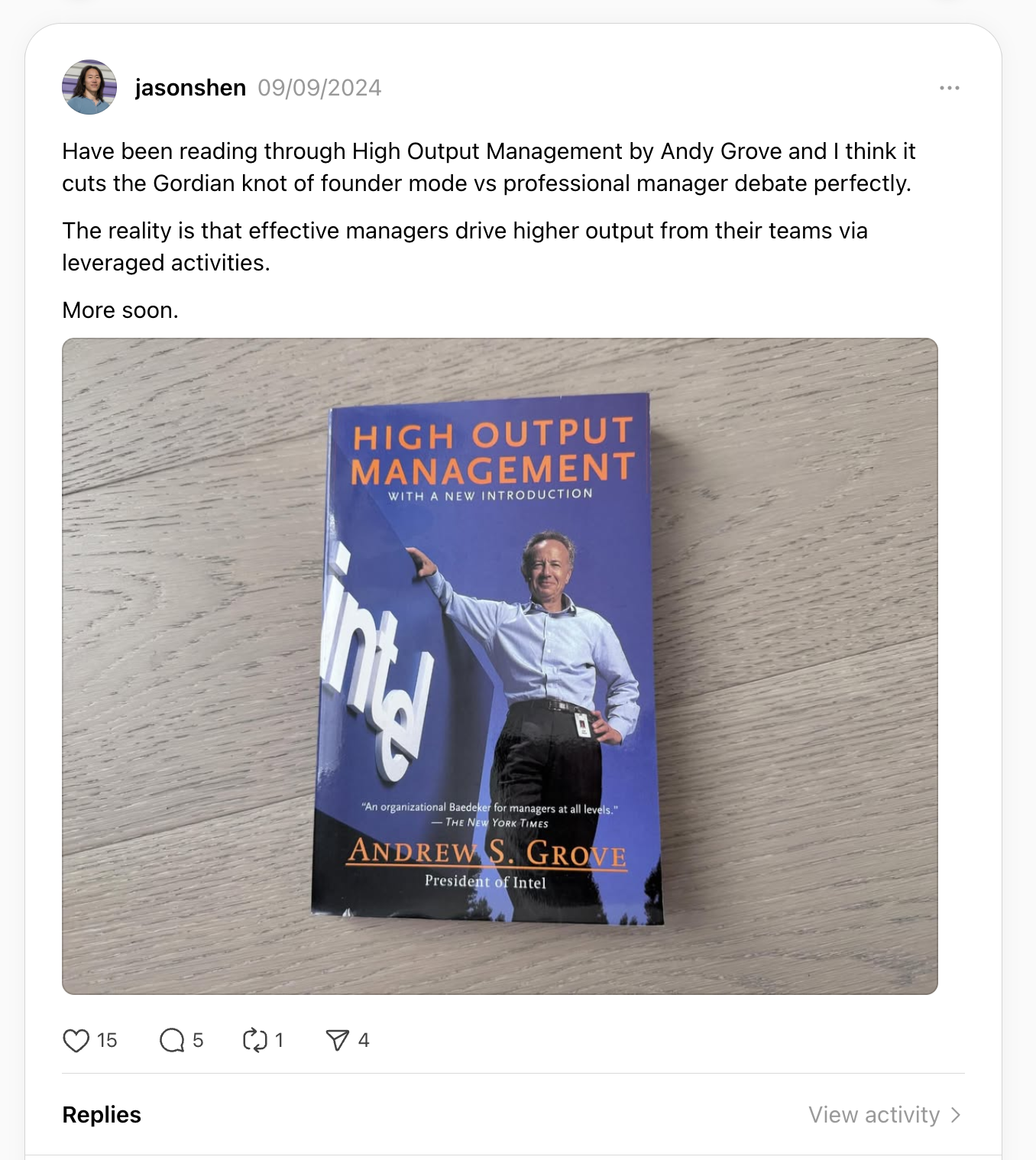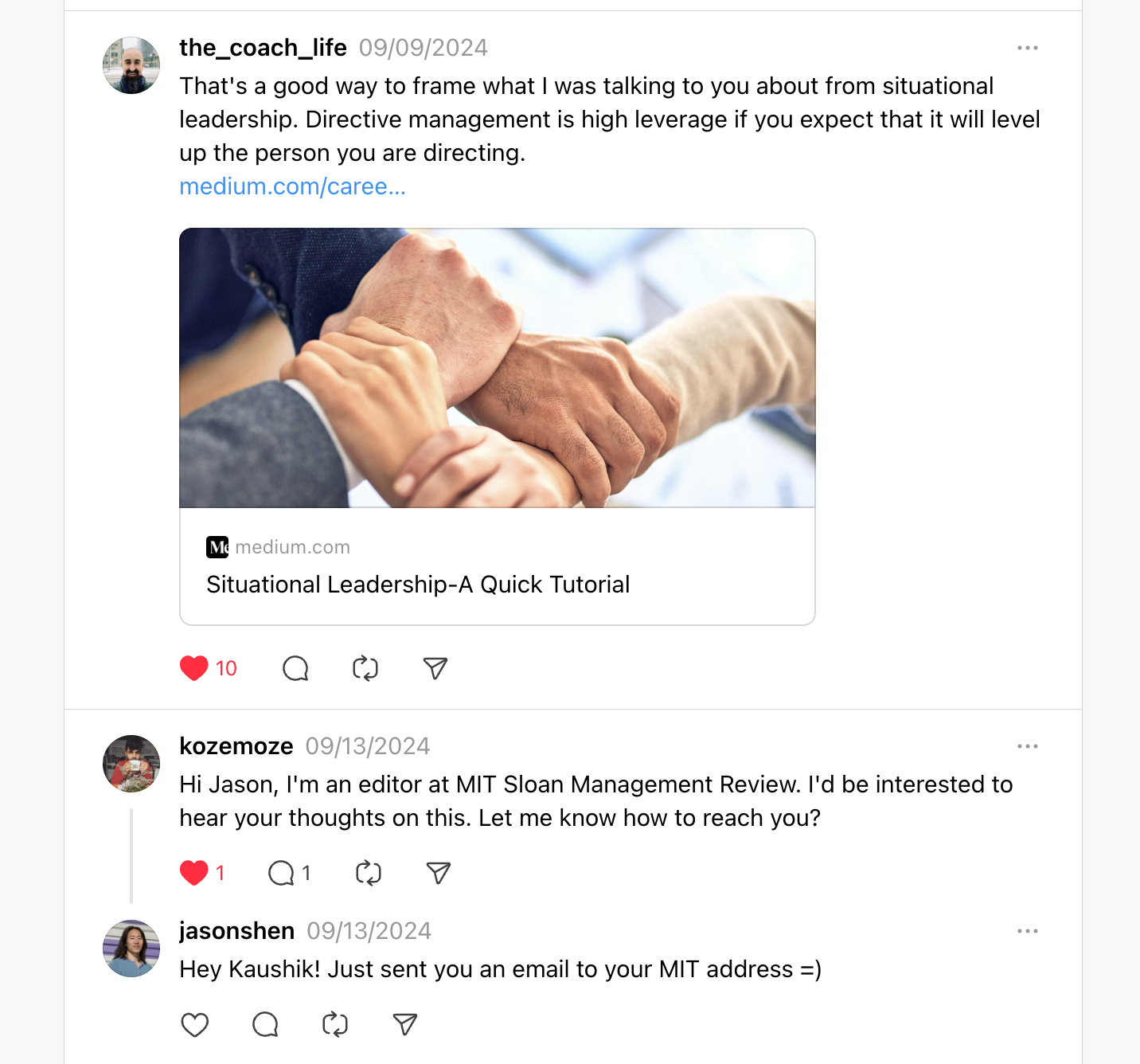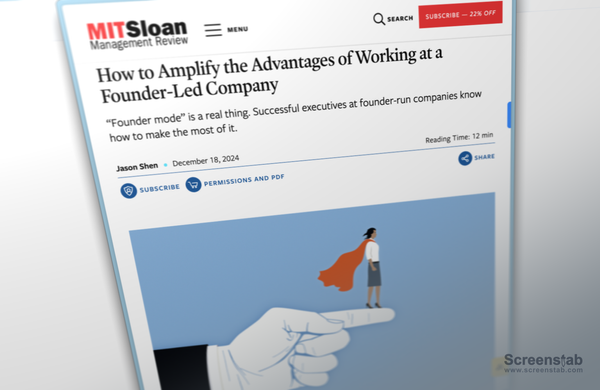In the final weeks of December, I publishes a rather extensive article in the MIT Sloan Management Review, which is essentially the MIT's version of HBR—a business publication with an academic slant. It builds on the piece put forward by Paul Graham on Founder Mode, which kind of took over startup / tech twitter for a minute.
I'm really happy with how the piece came out and wanted to wait until the new year to share it so it didn't get lost in the holiday shuffle.
How to Amplify The Advantages of Working at a Founder-Led Company (requires free MIT Sloan Review account)
The tl;dr: Founder mode works because founders generally possess three natural advantages: domain expertise, earned legitimacy, and stakeholder forgiveness. This allows them to move faster, be more hands on, and take bigger bets that can have outsized returns.

The article goes into more details about what those advantages really are, why they work, and how professional managers—the main audience / target reader for Sloan Review—can amplify those strengths while mitigating their risks.
How the piece came to be: the story emerged from a post on Threads I shared about Andy Grove's High Output Management, which my friend Tony Stubblebine commented on, which caught the eye of Kaushik Viswanath, editor at Sloan Review.


Writing for publications takes longer than writing this newsletter (no duh) but it varies a lot.
- For contributed pieces to somewhere like FastCompany (see my piece on Simone Biles) or CNBC (see my piece on resilience) the editor usually has 1 major round of comments / requested changes, then they do a copyediting pass and publish it.
- For a piece in Every (see Gamma's AI pivot) or Vox (my op-ed on Always Be My Maybe), there's more cycles of revisions—usually 3 or 4.
- This piece took probably 5 or 6 rounds in total, including a big rewrite that moved it away from the "task relevant maturity" focus I had at the beginning, and a pass for supporting my claims with relevant academic research.
In the end it took about 3 months from that initial email to the final publication, and while that time lag isn't great, those extra rounds of commentary and feedback made the piece a lot stronger and substantial in the end. I think my ultimate thesis is fairly novel and original.
Left on the cutting room floor: Here's a snippet that was ultimately cut that I loved—on psychological outlierness of founders:
Let’s start with the fact that founders are stark psychological outliers in the workplace. A 2023 study found entrepreneurs typically seek novelty, initiate action, and gravitate toward leadership roles—all relevant traits for the difficult task of building something from nothing. Founders also self-report higher rates of mental health conditions compared to non-founder workers—an observation that aligns with my coaching practice, where many founders display traits associated with ADHD, anxiety, and autism spectrum conditions.
As licensed psychologist and founder coach Dr. Gena Gorlin emphasizes, founders have uniquely demanding psychological needs. Their ambitious goals and the pressures of company-building require levels of psychological competency that extend "beyond what current gold-standard psychotherapy and positive psychology tools are even aiming at." This distinct psychological profile helps explain why founders might gravitate toward a different leadership approach than conventional managers.
Anyway, that's the whole newsletter this week, please read the full piece in MIT Sloan Review. It will ask you to create an account which is free and lets you read articles each month (kinda like The New Yorker).


